Computer Science
Computer Science house system a way to build community among students, faculty
Computer science majors at Tennessee Tech University have a new reason to feel more at home.
In late March, they were sorted into six houses named after famous computer scientists – Ada Lovelace, Alan Turing, Anita Borg, Edsger Dijkstra, Grace Hopper and John von Neumann – through an initiative by the Department of Computer Science to build learning communities, promote connections and facilitate mentoring opportunities within the second largest and one of the fastest growing programs on campus.
“Soon we will have 700, 800 students that are part of the department, and this house system is going to be important for people to be able to know others and to be known,” Dr. Jerry Gannod, department chair, said.
The sorting process was based on student classifications and concentration areas to allow for diversity within each house. So far, students have been invited to join their house’s own Discord server, an online chatting platform where they can engage with housemates and faculty leaders. They have also voted for their house crest design. Kickoff mixers were held this week, and, in coming semesters, students will have opportunities to participate in various competitions, community service projects and other activities designed to build a sense of community.
The idea for the house system goes back two years ago, when the university’s freshman advising structure changed with the creation of the Launchpad Student Success Center.
“What this did was create a situation where our faculty would have fewer touchpoints with students because they would be doing less academic advising,” Gannod said. “Without that vehicle, the only time students and faculty would ever get to know each other would be in classes.”
The lack of that informal connection through advising, along with the growing number of computer science majors, brought about a need for more faculty mentoring opportunities, according to former Launchpad advisor Laura Nisbet, who assisted the Department of Computer Science with the development of the house system as part of a working group of faculty, staff and students.
Nisbet noted that the house system offers community involvement opportunities beyond that of student groups and clubs.
“Sometimes faculty are involved with (student groups), but I think this is different,” she said. “It’s going to be heavier on that relationship building with the faculty but also with other students from other years,” she said. “Freshmen will be able to interact with seniors.”
Computer science lecturer April Crockett, a faculty leader in House Lovelace, is excited about the possibilities.
“Since each house comprises faculty, graduate students and all levels of undergraduate students, there will be plenty of mentorship opportunities,” she said. “This will allow students to engage with faculty in a meaningful way. Students and faculty will feel more connected and can learn from each other in a more casual and fun setting outside of the classroom.”
Crockett said the house system will allow students to be part of a family group with people who have similar interests and goals. Friendly competitions between houses offer additional benefits.
“Through competitions, students can improve technical skills, gain a better understanding of how to deal with conflicting ideas and learn how to collaborate with widely differing personalities,” she said.
Freshman Nate Dunlap of House Borg was one of several students involved in the implementation of the house system, having been instrumental in the technical setup of the Discord servers for each house.
“Discord is a pretty common venue for communication nowadays, especially among computer science majors,” he noted.
When Dunlap first heard about the house system, he immediately connected with the vision.
“I saw a really good opportunity to make a very lively and active community,” he said.
He envisioned friend groups within the Department of Computer Science getting together to study for classes as well as engaging in activities outside of campus. He also pictured fun events like capture the flag and various cybersecurity and programming challenges.
“I think we’re on track to make that a reality,” he said.
With the launch of the house system, students can get involved and benefit in several ways.
“Peer mentoring, I think, is going to be a big deal with this,” Gannod said. “Students that have been here a while can hand down knowledge they’ve gained from courses they’ve taken and professors they’ve had. They can teach (underclassmen) the ropes of what it means to be a computer science student. And then there’s just going to be the fun piece of having game nights or times when people just get together for whatever reason through the house system.”
A point system is in the works as another way to create even more engagement through “healthy and uplifting competitions,” Gannod said.
“There are so many different aspects to this – certainly the faculty connection and the connection with each other. It really is that part of our strategic plan of focusing on community building, focusing on people. This is a way for us to do that.”
Return to College of Engineering Newsroom
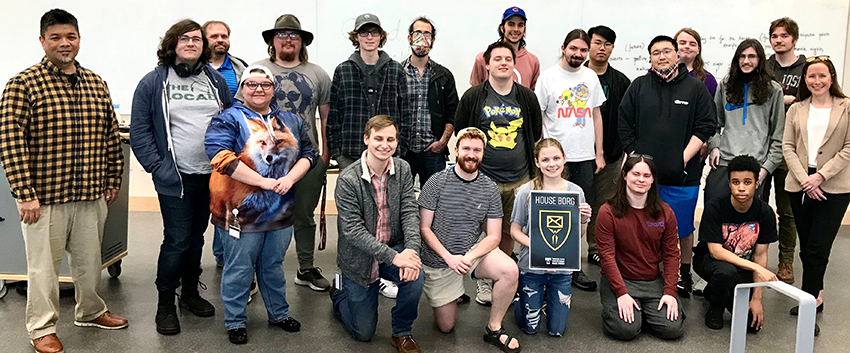
House Borg
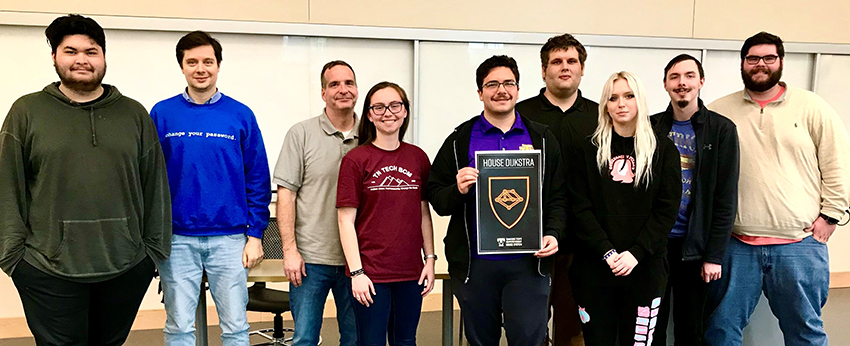
House Dijkstra
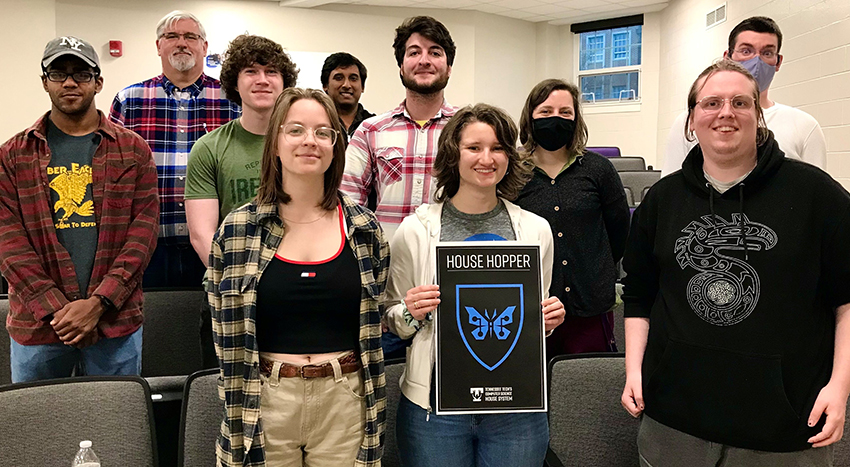
House Hopper
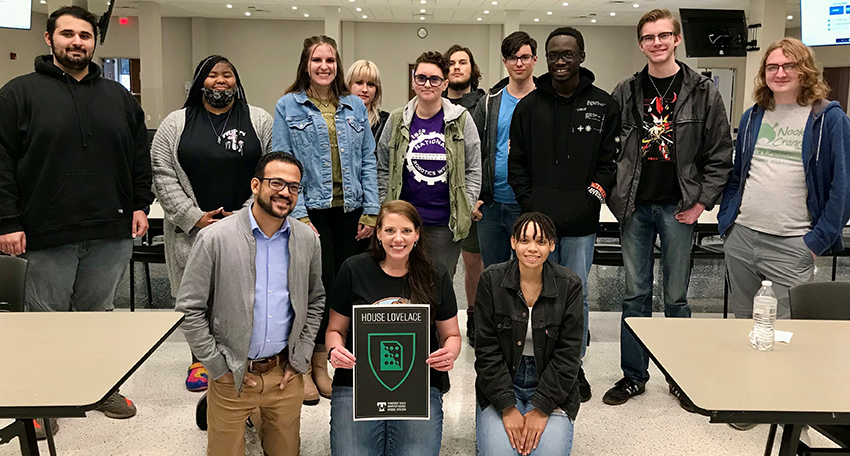
House Lovelace
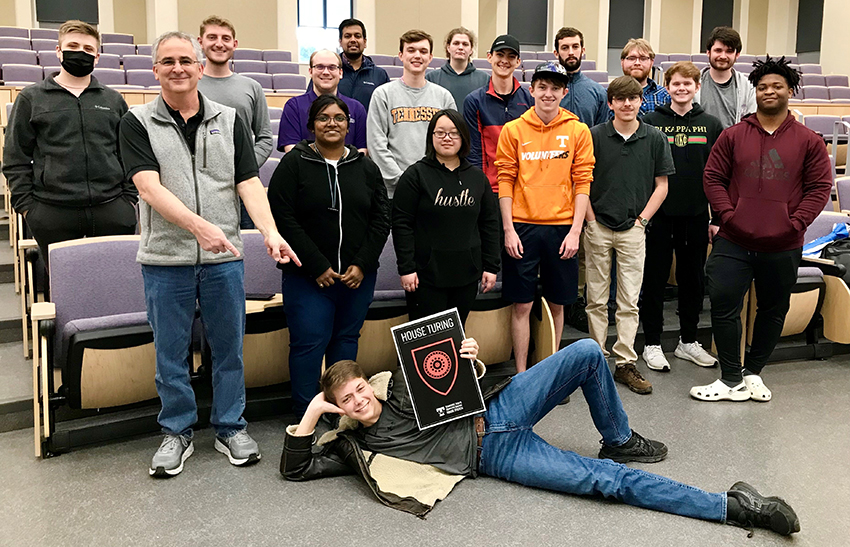
House Turing
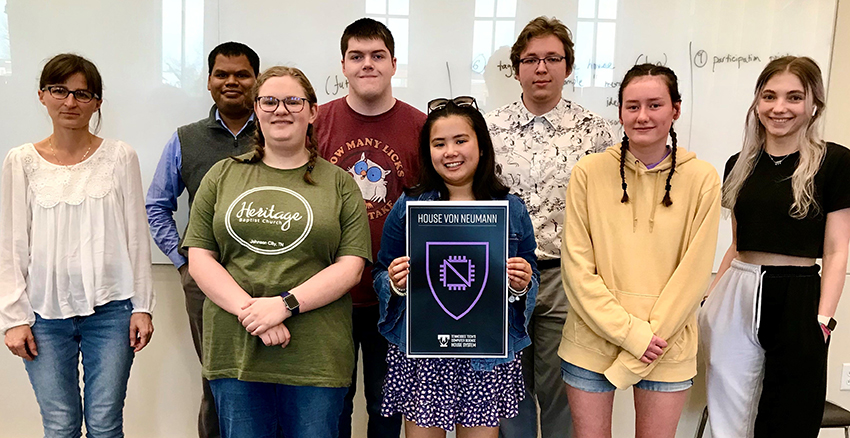
House Neumann

